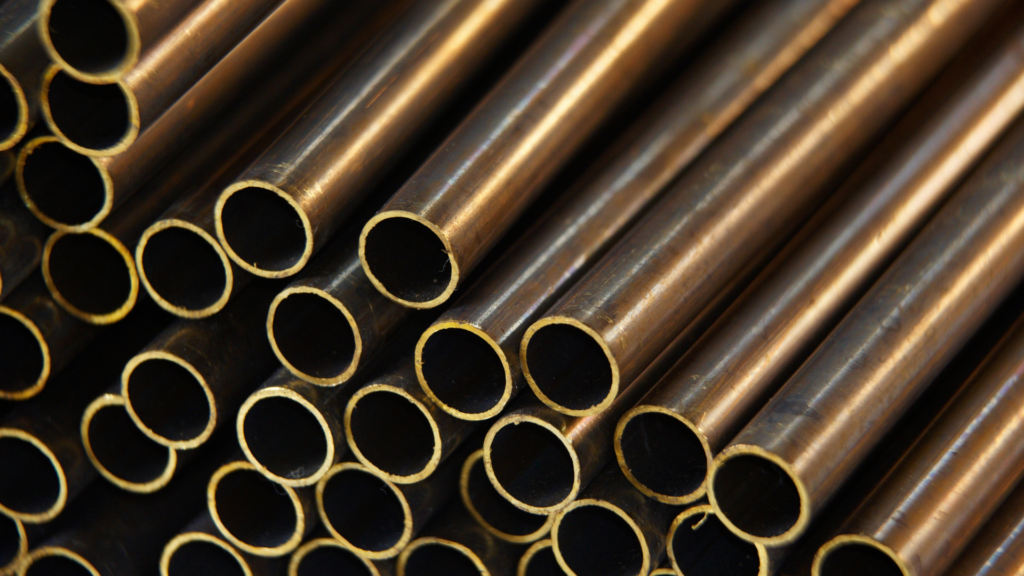One of the most essential components of any CNC precision machining project is deciding which material is best for a particular application. The decision can be challenging for those new or unfamiliar with the fabrication process as many factors come into play.
At Arrow Engineered Products, we work closely with our customers to help them determine which material options work best for their application. In this blog, we’ll outline many of the factors we use in our recommendations so you can make an informed choice when you’re ready to go into production.
The Material Selection Process For Your Precision Machining Projects
Choosing the correct materials is a decision that must be made with diligence and planning. At Arrow, we take a collaborative approach that considers every detail of the final application.
The first step is to clearly define your precision machining project’s mechanical, thermal, and material requirements according to how you’ll use the product and what environment it will be used in. Desired surface finishes, aesthetics, and budget are also discussed during this step.
Next, we use this information to narrow the long list of materials to a select few. From here, we discuss what’s most important to you based on your requirements in order to determine the correct material.
Read More: Arrow’s Proven Methodology Of Metal Fabrication Results
Factors To Consider When Selecting Materials For Your Precision Machining Projects
Some of the most common factors that drive materials choice include:
Machinability
Harder materials such as stainless steel and titanium are more challenging to cut, drill, or shape than lighter materials and cost more to fabricate in tool wear and breakage. Softer materials such as aluminum or brass are easier to work with and offer smoother surfaces but don’t offer the weight tolerances steel can.
Weldability
Not all materials can be welded together, such as aluminum and steel or steel and titanium. If your project requires fusing different materials together, ensure they’re compatible at the planning stage.
Heat Resistance
If your part will be subject to harsh or extreme temperature environments, the selected materials must have superior heat resistance, such as nickel, stainless steel, and certain types of ceramics.
Electrical Conductivity
Materials such as brass and copper have high electrical conductivity, meaning they can effectively dissipate heat during fabrication and when used in the final application.
Thermal Conductivity
If your project requires thermal conductivity, meaning it needs to transfer heat efficiently, steel, titanium, and magnesium are good options for maximum performance.
Part Weight
Heavier parts often require more materials, need longer production times, and are sometimes more challenging to fabricate. These factors will affect the cost of the final product.
Impact Resistance
Materials such as ceramics and titanium can disperse kinetic energy on impact, making them perfect for defence and protection equipment applications.
Surface Finish
Many projects require a smooth surface finish to minimize friction, improving the performance and lifespan of the part. Aluminum and copper are easy to fabricate and offer ideal surface finishes, whereas materials such as titanium require more specialized techniques to achieve a smooth finish.
Desired Aesthetics
Many projects require materials that can be easily polished, coated, and painted for the most visually appealing result possible. Stainless steel is often an excellent choice for custom finishes.
Chemical And Flame Resistance
Metal, ceramics, plastics, glass, and their composites are all known to resist exposure to harsh chemicals. Additionally, metal and glass are non-combustible.
Outdoor Elements Resistance
Protection against extreme temperatures, corrosion, or other environmental factors is crucial for outdoor applications. Stainless steel and titanium are perfect choices when environmental factors are a concern.
Read More: Tailoring Design To Custom Metal Fabrication Requirements
Common Fabrication Materials For Precision Machining Projects
There is a wealth of fabrication materials available to suit virtually every product need. However, most projects utilize one or more of the below options because they offer an excellent combination of strength, durability, availability, impact and heat resistance, and machinability.
Aluminum: Lightweight, corrosion-resistant, flexible, with an excellent strength-to-weight ratio
Brass And Copper: Easy to fabricate, attractive, offering high electrical and thermal conductivity
Carbon Steel: Superior strength and durability and easy-to-fabricate
Ceramic And Titanium: Lightweight, strong, and corrosion-resistant with a high strength-to-weight ratio
Glass-Reinforced Polymers: Strong, light, versatile, and corrosion-resistant
Magnesium: Light and strong with excellent thermal properties
Stainless Steel: Durable, strong, corrosion resistant, available in different grades
Expert Materials Recommendations That Fit Your Requirements
The number of factors and materials to consider can seem overwhelming, but with the right partner at your side helping you make critical manufacturing decisions, you’re assured of success.
The highly skilled team at Arrow Engineered Products specializes in delivering end-to-end solutions that meet or exceed our customers’ needs. We’re with you at every step of your precision machining projects, including during materials selection, with seasoned advice based on our over 100 years of precision machining experience.
When you’re ready to start a new fabrication project, contact Arrow for a partner you can trust.
Get A Project Quote From Arrow Engineered Products For Your Next Design And Fabrication Project
Partner with Arrow Engineered Products for high-value design, engineering, and fabrication solutions to suit almost any application. Visit www.arrowmfgep.com/contact/ to experience the Arrow difference in quality, precision, and service for yourself. Get in touch with us today!
